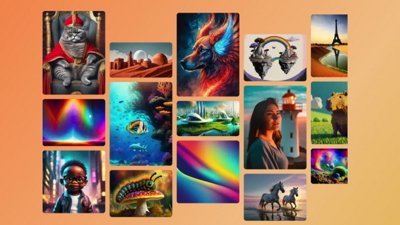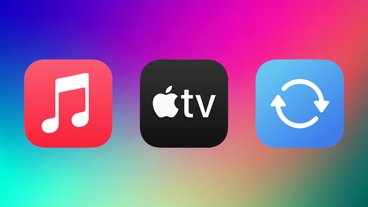Taylor Swift praises Apple, but calls 90 day free trial of Music service 'shocking, disappointing' for artists
Apple Music's planned three-month free trial, during which users can try the new music streaming service without paying — and under which artists wouldn't earn any royalties for those streams — has found a new critic: pop star Taylor Swift.
A series of smaller labels have already criticized the planned free trial, complaining that providing 90 days of unpaid streaming — with no subsidizing assistance from Apple — would threaten their operations as a viable business.
So much money, so unfair to spend it to kill competition
Apple has billions of dollars available to pay artists substitute royalties during users' free streaming trail, but were it to do so, the company would quickly find itself at the wrong end of global antitrust complaints. In many markets, "dumping" free or loss leader products would be considered anti-competitive.
Apple Music's existing media streaming alternative services, from Spotify, Rdio to Pandora, are much smaller firms with relatively little capital. Nobody is currently making significant profits from streaming music; if Apple were to enter the market and indirectly pay users to switch from those services for three months, it would be virtually impossible for its competitors to match that.
Instead, Apple hoped to negotiate a slightly higher payout rate for labels and their artists, while providing users with subscription rates compatible to its existing peers, along with providing new tools (like Connect, below) to help artists reach their fans.
And to introduce the service to users, it hoped labels would share their catalogs for a three month period in hopes of finding a large paid subscriber base.
In contrast, while Spotify offers users only one month of free trial, only about a quarter of its active listeners actually pay for the service, the rest listen for free in exchange for ads presented within streams, similar to Apple's existing (but more limited) iTunes Radio service.
So much right, so little causing big pushback
Apple's proposed tradeoff has generated vocal criticisms, most recently from Swift, who wrote a "To Apple, Love Taylor" blog posting that introduced her issue with praise the company.
"Apple has been and will continue to be one of my best partners in selling music and creating ways for me to connect with my fans," Swift wrote. "I respect the company and the truly ingenious minds that have created a legacy based on innovation and pushing the right boundaries."
Swift then noted that Apple's unpaid trial, where "Apple Music will not be paying writers, producers, or artists for those three months" was a showstopper issue, writing "I find it to be shocking, disappointing, and completely unlike this historically progressive and generous company.""I think this could be the platform that gets it right" - Taylor Swift on Apple Music
She added, "I realize that Apple is working towards a goal of paid streaming. I think that is beautiful progress. We know how astronomically successful Apple has been and we know that this incredible company has the money to pay artists, writers and producers for the 3 month trial period... even if it is free for the fans trying it out. Three months is a long time to go unpaid, and it is unfair to ask anyone to work for nothing."
While taking an critical tone with Apple's three months of free streaming, Swift also wrote "I say this with love, reverence, and admiration for everything else Apple has done. I hope that soon I can join them in the progression towards a streaming model that seems fair to those who create this music. I think this could be the platform that gets it right."
She concluded, "But I say to Apple with all due respect, it's not too late to change this policy and change the minds of those in the music industry who will be deeply and gravely affected by this. We don't ask you for free iPhones. Please don't ask us to provide you with our music for no compensation."
A short-term, solvable problem
Actually, Apple does provide "free" iPhones for a period of time, as it defers billions in revenue for accounting purposes and provides inventory as accounts payable to its own retail partners, knowing that it will make up the cost of doing business over time. Apple also provides free trials (or even fully free software titles and updates) for some of its own products, paying its own software artists, writers and producers to develop those titles.
However, Apple doesn't provide extended free trials for its bread and butter revenue generating products. Operating for 90 days without payment is a serious issue for music labels and particularly smaller artists who rely on monthly royalties. In comparison, Apple's deal with HBO Go only involved a one-month free trial.
While it would likely be illegal for Apple to fully subsidize its streaming content providers while offering users a three-month trial period, it may make sense for Apple to offer labels an estimated advance on future royalties that will be earned on Apple Music in order to ease artists from their existing dependance upon physical disc media and downloads into the subscription model of Apple Music.
That carries some risk, because nobody knows exactly how many Apple Music trials will result in paid subscriptions. But it would shift much of the risk from artists to Apple itself, making the two groups even better partners and making the new Music service an even greater strategic focus for Apple.
Virtually every media outlet has jumped on Swift's blog posting to suggest to their readers that the musician "condemned," "denigrated," "rejected" or "boycotted" Apple, apparently without noticing that Swifts' own blog directs readers to iTunes to purchase her latest "1986" album, the same one she said she doesn't want to make available for free streaming on Apple Music (or Spotify).
 Daniel Eran Dilger
Daniel Eran Dilger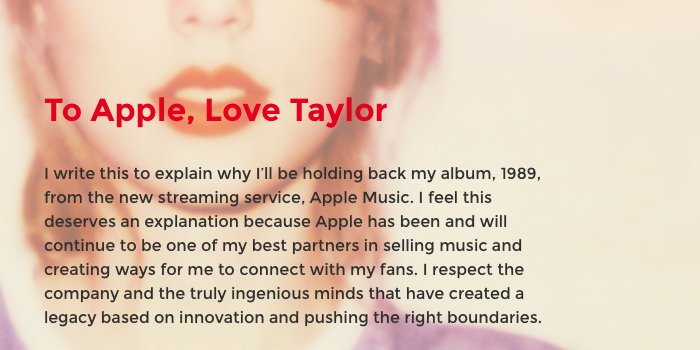
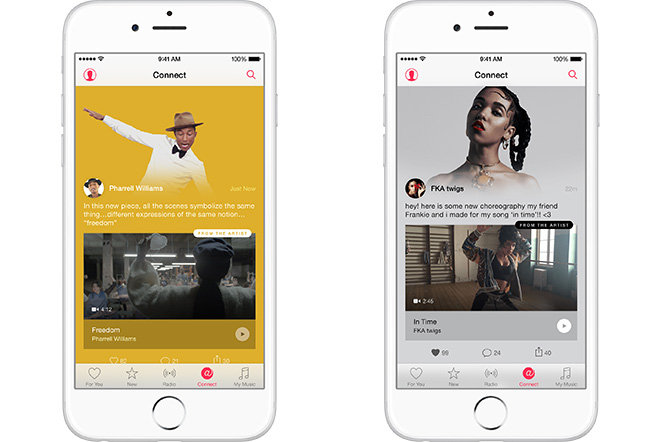
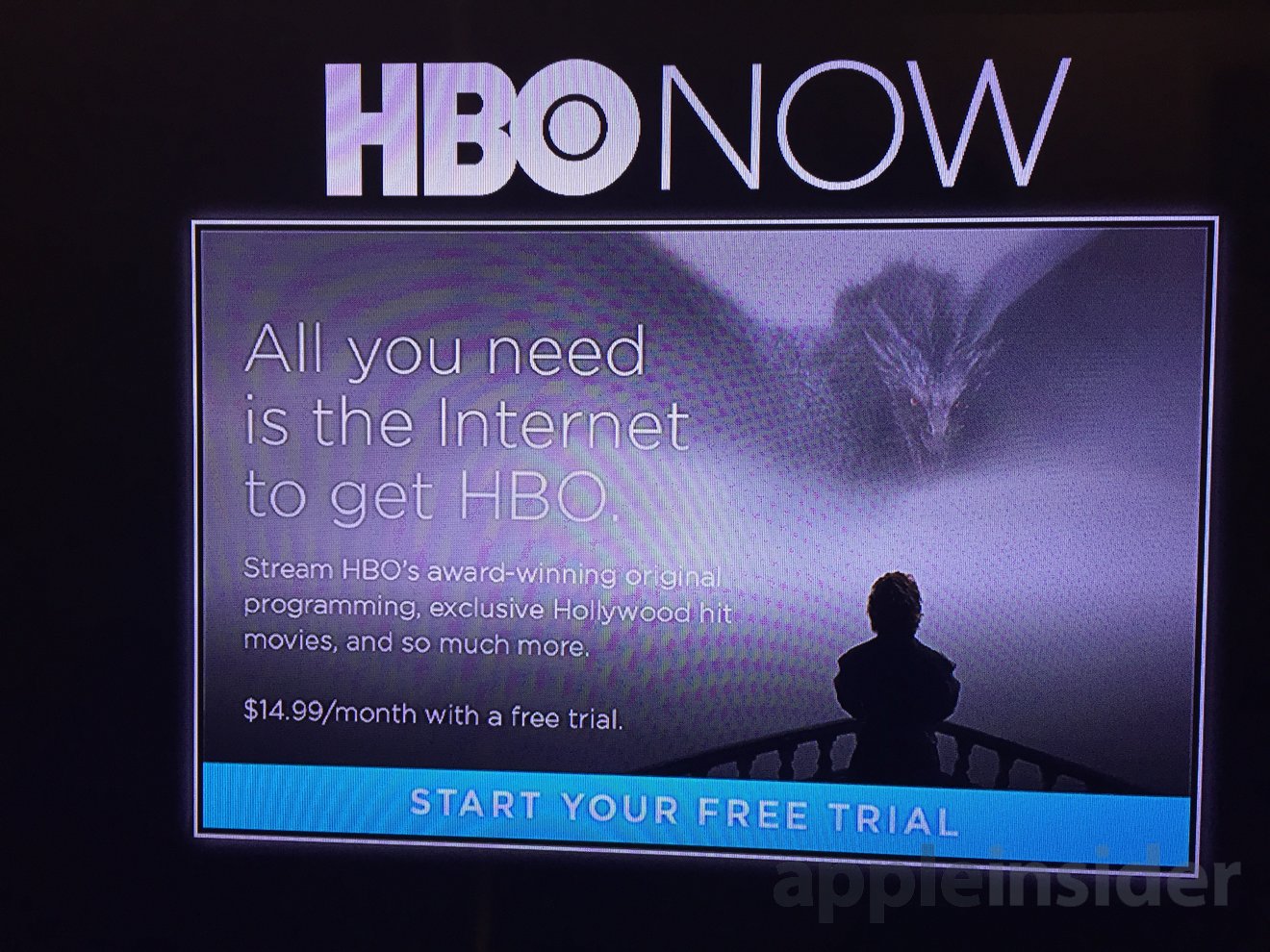











 Wesley Hilliard
Wesley Hilliard
 Amber Neely
Amber Neely

 William Gallagher
William Gallagher

 Malcolm Owen
Malcolm Owen
